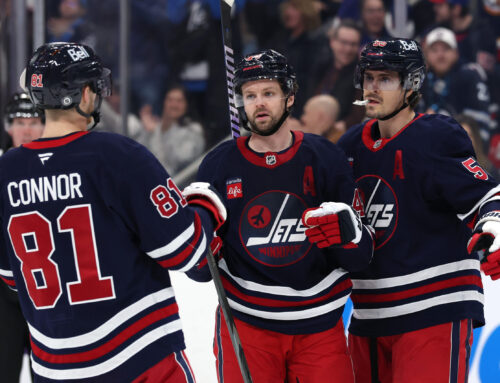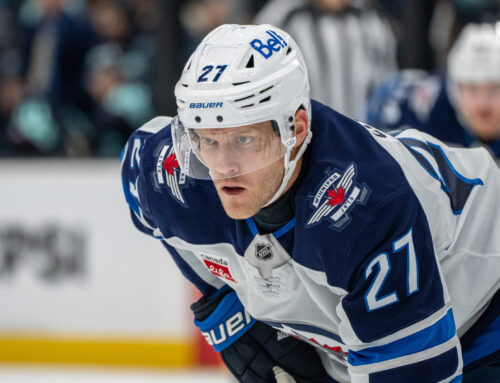
Is OEL a better fantasy own without Keith Yandle?
“A rose by any other name would smell as sweet” William Shakespeare
“Does an Ekman-Larsson without a power play smell as sweet?” Doran Libin
Ekman-Larsson is currently the only 20 goal scorer on the Arizona Coyotes. 20 goals for a defenseman is impressive, let alone one who carries the defensive load for his team. Part of OEL's success was the nature of the dynamic power play duo he formed with Keith Yandle. That partnership came to an end when Yandle was traded to the Rangers as the Coyotes embarked on the beginning of their rebuild. The changes in Arizona will undoubtedly have an effect on OEL's production for the last two weeks of the season as well as down the road. Everyone knows what Ekman-Larsson was capable of in the last iteration of the Coyotes but that could change.
|
Year |
TOI |
EV P/60 |
EV IPP |
On-ice SH% |
CF%Rel |
ZSO% |
|
2013/14 |
25:34 |
0.83 |
44.2 |
6.88 |
3.06 |
48.87% |
|
2014/15 |
24:59 |
0.83 |
44.2 |
6.22 |
7.81 |
43.74% |
Ekman-Larsson's 21 goals thus far are all the more impressive given the nature of his usage by the Coyotes. His even strength goal rate combined with his sub 45% offensive zone starts are reminiscent of Shea Weber circa 2008-2010. When Keith Yandle was on the team, the Coyotes used Ekman-Larsson with Zbynek Michalek in order to give Yandle sheltered offense-centric minutes. Now with Yandle and Michalek gone he still gets those tough defensive zone starts, maybe even to a greater degree as his offensive zone starts are down to 41% since March 1. An encouraging sign is that Klas Dahlbeck and Andrew Campbell are getting even fewer offensive zone starts. The difference is that OEL, now with Michael Stone, still gets the toughest competition.
2014/15
22:53
0.93
37.2
7.86
2.69
52.16%
Jared Spurgeon is probably best described as an under-rated defenseman, partially because he is small in nature and partially because his annual point production has not been overwhelming by any means. Spurgeon is one of four Wild defensemen that faces high levels of competition. Ryan Suter gets the easiest zone starts of the four while Marco Scandella gets the toughest zone starts. Spurgeon and Jonas Brodin fit in the middle seeing high-end competition with just over 52% offensive zone starts. This means that Spurgeon's role on the Wild is somewhat nondescript, making his role on the second power play and penalty killing units very appropriate.
Despite the in-between nature of Spurgeon's usage his rate of production is impressive as he averages nearly a point per 60 minutes of even strength ice time. His production as a whole and his rate of production have increased from last year as the Wild have become a much better offensive team. The Wild have been offensively moribund for so long that many do not realize they are on the brink of being a top 10 offensive team. There are some signs that Spurgeon's uptick in production is not just a factor of the Wild's overall increase in production. The first is that while Spurgeon is not a significant driver of the Wild's offense when he is on the ice he has become a bigger part of their offense. His even strength IPP has gone from 30 to 37, meaning he is involved in more almost 25% more of the Wild's even strength offense when he is on the ice. That is even more impressive as Spurgeon's on-ice shooting percentage has dropped almost two points.
What's the Difference?
|
Player |
Points |
EV Points |
PP Points |
PP P/60 |
PP TOI |
SOG |
S/G |
|
Ekman-Larsson |
40 |
18 (45%) |
18 (45%) |
4.15 |
3:58 |
242 |
3.23 |
|
Spurgeon |
24 |
16 (67%) |
6 (25%) |
2.8 |
2:07 |
118 |
2 |
The big difference, other than overall skill, between Spurgeon and Ekman-Larsson is the degree to which they benefit from power play production boosting their overall totals. Oliver Ekman-Larsson has a pretty even split between his power play and even strength production whereas Spurgeon's even strength production outnumbers his power play production by almost three to one. This means that Ekman-Larsson is very dependent on his power play time and the resulting production. Whereas Spurgeon gets second unit minutes on the Wild power play, Ekman-Larsson gets almost four minutes of prime power play minutes per game for the Coyotes. This is reflected in OEL's shot rate as he averages more than a shot per game on the power play as the main shooter on the Arizona power play, regardless of Yandle's presence. OEL is such a dominant shooter on the Arizona power play that his shot rate in that situation is twice that of any of the remaining Coyotes.
Why the comparison?
No one is mistaking Jared Spurgeon for Oliver Ekman-Larsson, Spurgeon is of a lesser caliber. The comparison of OEL to Spurgeon came about as a result of some fooling around with war-on-ice's new player comparison tool. Based on their even strength numbers and rates of production OEL and Spurgeon's 2014-15 seasons were an 89% match for each other. Spurgeon has a higher rate of production at even strength but OEL plays more, meaning that they should produce basically the same number of EV points. With Arizona's power play faltering since the Yandle trade OEL may become more reliant on even strength points as a percentage of his overall production. As such Jared Spurgeon may be a better comparison for OEL than he would have initially seemed. Ekman-Larsson will always have the potential to score more than Spurgeon given his incumbent role on the Coyotes' power play but that only means so much if the power play is horrible. Spurgeon's drop in power play production as the Wild power play has fallen off can be seen has a corollary for how OEL's production could fall if the Arizona power play does not rebound from it's current post-deadline lows.
What now for Oliver Ekman-Larsson?
There are a myriad of question marks going forward in Arizona. Three main pieces were shipped out around the trade deadline as offensive defenseman Keith Yandle, number one center Antoine Vermette and defensive stalwart Zbynek Michalek were traded away. Yandle and Michalek have a major impact on OEL, as Yandle was a major power play cog and Michalek was OEL's even strength partner. As important as Yandle is to OEL's power play success, Michalek has helped OEL produce at even strength. OEL's been on the ice for significantly fewer goals with his current partner Michael Stone than he was when partnered with Zbynek Michalek. The diminishing returns for OEL are no doubt partially connected to the Coyotes' offense being down 25%, but OEL is on for 67% fewer goals with Stone than he was with Michalek.
Potentially even more important for OEL is the drop in power play production that the Coyotes have seen since March 1st. The GF60 for the power play has fallen to 65% of what it was before the trade deadline. As Ekman-Larsson gets half of his points on the power play this could drastically effect his overall production. In the small sample size since the deadline OEL has only got 33% of his points on the power play. Oddly though that may be because he is producing at a higher rate than he was before the deadline with 9 points in his last 13 games, built on a 13% shooting percentage at even strength.
The outlook for OEL over the next couple years is a step back in production. With an expected faltering of the Coyotes power play, as a result of Arizona youth movement, OEL will feel the pinch. Even with the talent in the Arizona system (Domi, Duclair, Samuelsson, Gormley, etc.) the Coyotes look like a good bet to struggle as a young talented roster does not necessarily mean success, just ask the Oilers.
| How Good is Tyson Barrie? | 23 March 2015 | ||
| What Happened To Mikael Granlund? | 16 March 2015 | ||
| NHL Trade Deadline Discussion | 09 March 2015 |





 FLA
FLA CHI
CHI NYR
NYR PIT
PIT L.A
L.A COL
COL N.J
N.J MTL
MTL CBJ
CBJ BOS
BOS DET
DET ANA
ANA
